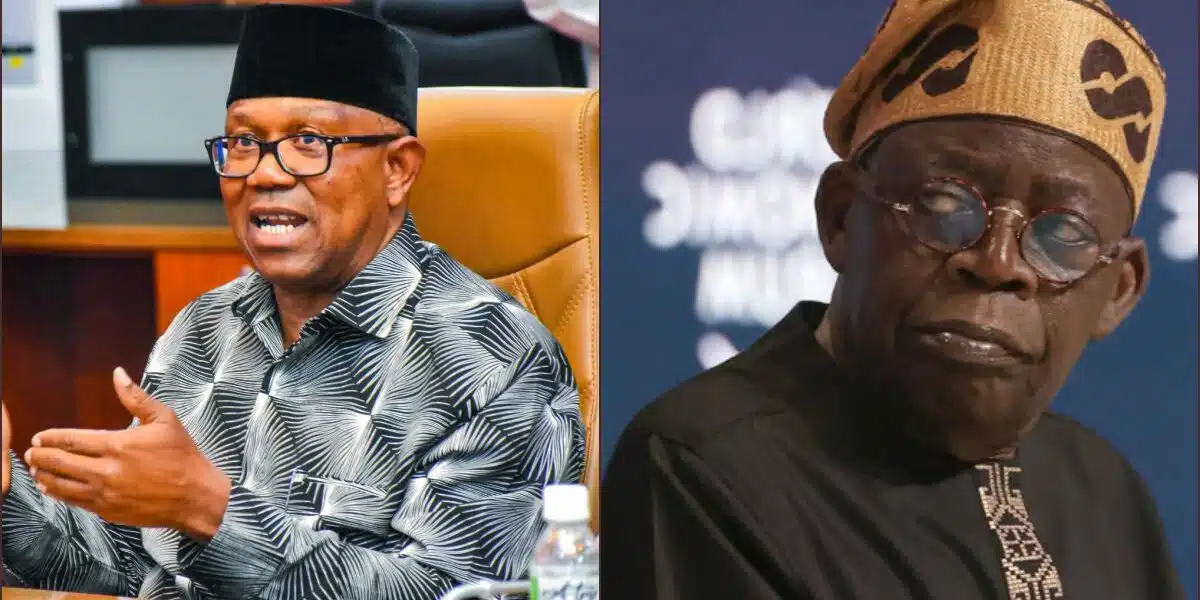News
Peter Obi Accuses Tinubu of Weaponising Governance, Urges a Return to True Democratic Values

On a day meant to reflect the country’s democratic progress, Peter Obi used his Democracy Day message to paint a sobering picture of what he sees as a nation drifting from the ideals it once fought to uphold.
The former Labour Party presidential candidate didn’t mince words as he urged President Bola Ahmed Tinubu to take a page from the leadership books of late President Umaru Musa Yar’Adua and former President Goodluck Jonathan—leaders he described as symbols of humility and democratic maturity.
Obi recalled Yar’Adua’s rare act of statesmanship in admitting that the election which brought him to power was deeply flawed. That moment, according to him, was not just about integrity, but about a leader recognising the need for institutional reforms. He then praised Jonathan for stepping aside in 2015 without hesitation, even before official results were declared, saying that act spared the nation bloodshed and preserved its fragile democracy.
The tone of his message quickly turned critical as he assessed the current state of governance under Tinubu. He argued that rather than building on these democratic milestones, the present administration has embraced practices that threaten to unravel them.
From his viewpoint, the rule of law has taken a back seat, while due process and transparency are becoming increasingly rare in public life. Obi warned that Nigeria is gradually shedding the very features that define democracy.
“We are no longer a democracy in truth or in substance,” he said. “The pillars of governance, government of the people, by the people, and for the people, have all been eroded.”
He pointed to election outcomes and leadership appointments as evidence of what he called a deliberate sidelining of merit and fairness. According to him, individuals with questionable credentials and unclear mandates have emerged as power holders, not through the will of the people but through institutional manipulation.
What concerned him even more, he said, was the administration’s apparent comfort with normalising failure. “Two years into this government, we now see an environment where lies are celebrated, propaganda is used as policy, and accountability is a forgotten concept.”
He also accused the presidency of gaslighting Nigerians by deflecting blame and twisting public narratives. The result, he argued, is a populace trapped in economic hardship, rising insecurity, and an increasing sense that their voices no longer matter.
Obi’s remarks came at a time when many Nigerians are still searching for signs of tangible progress. With inflation rising, and institutions seen as weakened by executive overreach, the question of democratic sustainability is once again at the centre of public debate.
His Democracy Day statement wasn’t just a critique—it was a call for a return to leadership that acknowledges past errors, honours the will of the people, and sees service as a duty rather than a tool for domination. And in echoing the examples of Yar’Adua and Jonathan, Obi made it clear that Nigeria doesn’t lack the capacity for such leadership. What it needs, he said, is the political will to follow it through.
RECOMMENDED FOR YOU
Labour Party Crisis Deepens as Abure Faction Accuses Peter Obi of Instigating Internal Wrangles





























